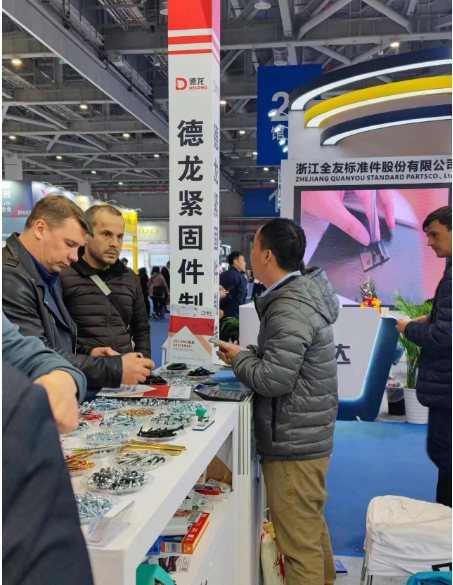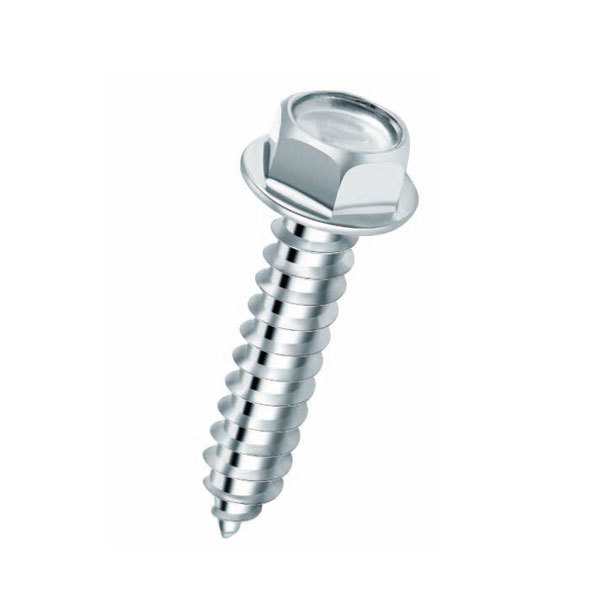lut . 12, 2025 09:24
Back to list
difference between self tapping screws and self drilling screws
When choosing the right fastening solution for a construction or DIY project, understanding the differences between self-drilling and self-tapping screws is paramount to achieving the best results. These screws are often confused due to their self-descriptive names, but they serve distinct functions and have unique applications that can significantly impact the outcome of your projects.
One critical aspect to consider is the potential load and the structural integrity required of the fastened components. Self-drilling screws tend to provide greater holding power in metallic applications due to their integrated washer heads, which distribute pressure evenly across the fastening surface, reducing the likelihood of material fatigue or stress fractures over time. In contrast, self-tapping screws can offer better holding power in wood applications, as their coarse threads enable them to grip the wood fibers tightly once the initial threading is established. In terms of installation, each type of screw offers different benefits. The absence of pre-drilling for self-drilling screws reduces the need for additional tools, streamlining the process and minimizing the risk of error during installation. However, self-tapping screws, with their need for pilot holes, provide controlled depth and precision, essential in applications where material thickness varies or where detailed craftsmanship is required, such as in fine woodworking. Ultimately, the choice between self-drilling and self-tapping screws is not influenced by one being universally superior to the other, but rather by how well each type serves specific project requirements. Understanding the mechanical properties and capabilities of each screw type allows for informed decision-making and optimized performance in your building ventures. The key takeaway for professionals across construction, maintenance, and home improvement sectors is that investing in the correct type of fastener not only enhances the quality and durability of the completed work but also enriches your expertise in material compatibility and fastener technology. By selecting the appropriate screw, you empower your projects with the strength and precision needed to withstand both environmental challenges and the test of time.


One critical aspect to consider is the potential load and the structural integrity required of the fastened components. Self-drilling screws tend to provide greater holding power in metallic applications due to their integrated washer heads, which distribute pressure evenly across the fastening surface, reducing the likelihood of material fatigue or stress fractures over time. In contrast, self-tapping screws can offer better holding power in wood applications, as their coarse threads enable them to grip the wood fibers tightly once the initial threading is established. In terms of installation, each type of screw offers different benefits. The absence of pre-drilling for self-drilling screws reduces the need for additional tools, streamlining the process and minimizing the risk of error during installation. However, self-tapping screws, with their need for pilot holes, provide controlled depth and precision, essential in applications where material thickness varies or where detailed craftsmanship is required, such as in fine woodworking. Ultimately, the choice between self-drilling and self-tapping screws is not influenced by one being universally superior to the other, but rather by how well each type serves specific project requirements. Understanding the mechanical properties and capabilities of each screw type allows for informed decision-making and optimized performance in your building ventures. The key takeaway for professionals across construction, maintenance, and home improvement sectors is that investing in the correct type of fastener not only enhances the quality and durability of the completed work but also enriches your expertise in material compatibility and fastener technology. By selecting the appropriate screw, you empower your projects with the strength and precision needed to withstand both environmental challenges and the test of time.
Latest news
-
Top Choices for Plasterboard FixingNewsDec.26,2024
-
The Versatility of Specialty WashersNewsDec.26,2024
-
Secure Your ProjectsNewsDec.26,2024
-
Essential Screws for Chipboard Flooring ProjectsNewsDec.26,2024
-
Choosing the Right Drywall ScrewsNewsDec.26,2024
-
Black Phosphate Screws for Superior PerformanceNewsDec.26,2024
-
The Versatile Choice of Nylon Flat Washers for Your NeedsNewsDec.18,2024
Related News










